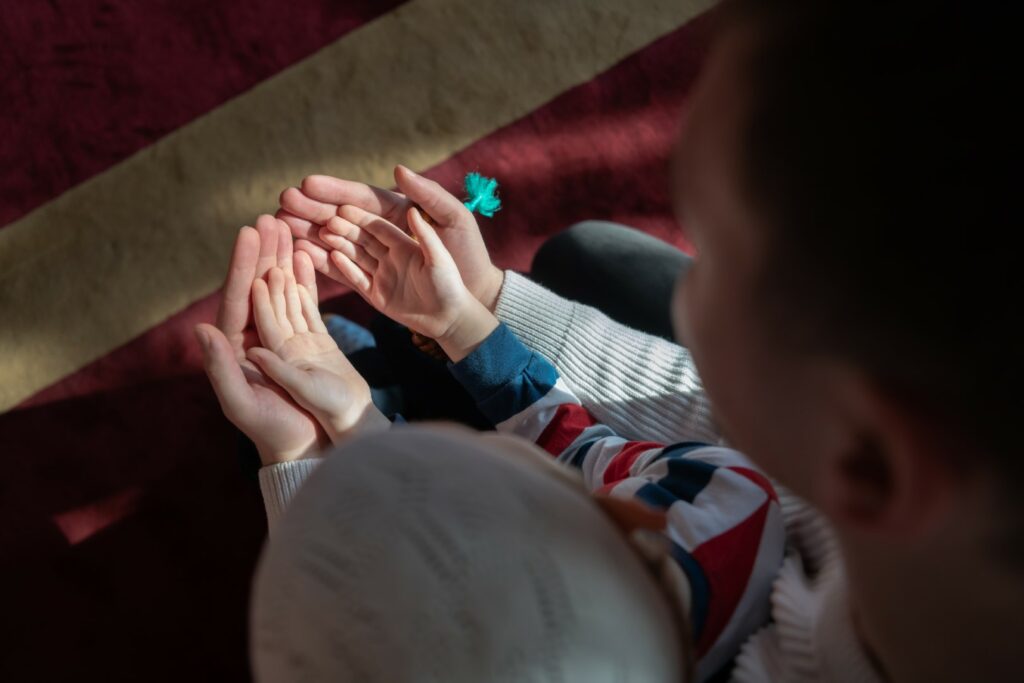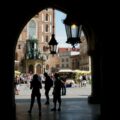The future of religion
The future of religion
What is in store for a post-COVID Europe? The new EARS dossier on the social impact of COVID-19 allows us to sketch a few brief answers to this question.
What is in store for a post-COVID Europe? What has experiencing a pandemic done to the ways people live and think? In particular, how has the future of religion been changed by the coronavirus? The recently published dossier on the social impact of COVID-19 allows us to sketch a few brief answers to these questions.
The future of religion will undoubtedly be more digital. If religions were generally outdated in their use of technology before the pandemic, their embracing of digital media after the outbreak of COVID was lightning fast because of their essentially communal existence. Religions’ new online existences have broadened their reach and presented a host of opportunities. It is unlikely religious groups will abandon these after the pandemic. However, every benefit comes with its challenges, and the digitisation of religions is no exception. How religious groups deal with polarisation, isolation, and mental health problems often associated with the internet remains to be seen.
As religions increasingly move their existence online, theological reflection will be needed to explore how this impacts community. For many Christians, gathering together to share bread and wine is an expression of the body of Christ. The physicality of the bread and wine they consume reflects God’s becoming flesh in Jesus of Nazareth, and gives Christians hope for the salvation of the physical world. At least in Christianity, ‘embodiment’ is associated with divinity, with ‘disembodiment’ usually linked to demons or immorality. What changes in this theological equation when people participate not physically but via a screen, not sharing hugs but heart emojis, not communing but computing? The same dilemma applies in different ways to all religious groups.
The pandemic also reintroduced death and disease into the collective imagination – topics that are usually spoken about only in whispers or not at all. For a world obsessed with youth, vitality and beauty, COVID’s reminder of our fragility as humans was unwelcome. As Europe emerges from the pandemic, people will be left with scars, an underlying nervousness that life will soon end.
Although people were sometimes brought together by the pandemic – videos of people singing from their balconies or clapping for doctors and nurses come to mind – polarisation was also a feature of COVID-19 times. The EARS dossier explored how polarisation hit Poland, Finland, and France, and also covered the Serbian Orthodox Church’s role in dividing Serbia. The pandemic has exposed old divisions in society and created new ones.
This presents religions with an unusual opportunity. Historically, it has been to religion that people have flocked in times of nervousness or despair. Religions give answers (albeit sometimes difficult ones) to the existential questions now being asked. What happens after I die? What is the best way to live out my short life? Will I see my mother again? What should I do with my money? What is eternal?
We are living through an unsettled period in history, but also a fascinating one. Each of us draws from our personal experience when answering how Europe has been changed by COVID-19. Yet as the dossier has shown, collective analysis of what has affected and motivated people is an urgent task in preparing for our next global crisis, for religions as much as nations.
This is the conclusion of our dossier on the social impact of COVID-19 on European societies. The full dossier, with an analysis of 15 different countries, is available here.
Frazer MacDiarmid & Ghila Amati
Want to learn more about similar topics? Go to the EARS Dashboard






